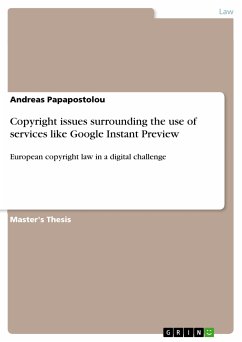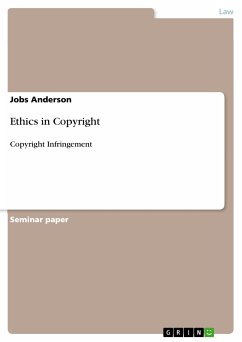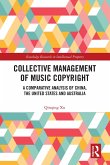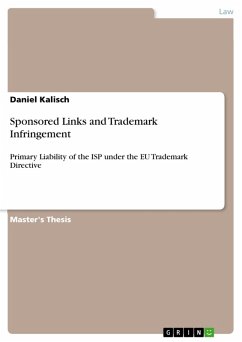Master's Thesis from the year 2011 in the subject Law - Media, Multimedia Law, Copyright, grade: B, University of Hannover (Institut für Rechtsinformatik), language: English, abstract: Search engines have raised an amount of legal issues surrounding copyright. Since search engines do not own a majority of the content they show, but mostly provide access to the content of third parties, the most common concerns are the reproduction of copyright protected works and the making available to the public thereof. Apart from the standard website search, specialised search functions like Infopaq or Google Image Search have also raised some fundamental copyright questions. In 2010 Google introduced a new function for its search engine, named Instant Preview, which also has the potential to raise certain copyright issues. Besides the title of a website, the URL and a snippet appearing on the search result list, the new feature offers a graphic representation of a given search result, in the form of a small screenshot appearing besides the results. This feature is useful to quickly evaluate the search results. This kind of feature is not completely new to web search engines. Yahoo search used this kind of feature years ago , and MelZoo.com is a web search engine which inherently used this function from the beginning . Also Bing offers a similar service for some time. Nevertheless, with Google Web search receiving several hundreds of million queries each day, and a worldwide market share of 80 per cent, the introduction of Instant Preview is bound to gain a lot of media attention. There are some consequences of this function for website operators. The process of search engine optimisation, which is used to improve the rank and visibility of webpages, can be affected by this website preview function. Normally, a user visits the first few search results given for a certain query, with the assumption that the first results are the most fitting for the search topic. SEO is used to improve the rank, for example by adding many additional keywords to a webpage. With the introduction of the website preview, users can now directly check if a webpage meets their demand. Websites using an extensive optimisation could lose visitors through this service, and ultimately revenues through fewer advertisements. This is likely to raise resistance against this service. Copyright reasons could be used to obstruct or shut down this kind of function. Judging from the impact of earlier cases of copyright issues surrounding search engines, this website preview function might draw legal actions. This would come as no surprise, as the controversial topics are diverse.
Dieser Download kann aus rechtlichen Gründen nur mit Rechnungsadresse in A, B, BG, CY, CZ, D, DK, EW, E, FIN, F, GR, HR, H, IRL, I, LT, L, LR, M, NL, PL, P, R, S, SLO, SK ausgeliefert werden.









